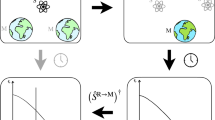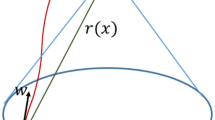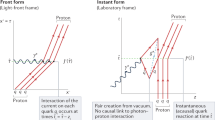Abstract
THE equations of motion of two gravitating particles have been given by Milne1; they are second-order differential equations in (t1, P1), (t2, P2), the epochs and vector positions of the two particles as measured by a fundamental observer, O. From their derivation, the equations are invariant for Lorentz transformations from one fundamental observer to another. There are eight variables, four for each particle, but only six differential equations—since Milne's equations (45′) and (46′) may be deduced from (45) and (46). Thus a further relation is needed in order to integrate the equations.
This is a preview of subscription content, access via your institution
Access options
Subscribe to this journal
Receive 51 print issues and online access
$199.00 per year
only $3.90 per issue
Buy this article
- Purchase on Springer Link
- Instant access to full article PDF
Prices may be subject to local taxes which are calculated during checkout
Similar content being viewed by others
References
Milne, Proc. Roy. Soc., A, 160, 12 (1937).
Schild, Phys. Rev., 66, 340 (1944).
Author information
Authors and Affiliations
Rights and permissions
About this article
Cite this article
CAMM, G. The Two-body Gravitational Problem in Kinematical Relativity. Nature 155, 754–755 (1945). https://doi.org/10.1038/155754a0
Issue Date:
DOI: https://doi.org/10.1038/155754a0
This article is cited by
Comments
By submitting a comment you agree to abide by our Terms and Community Guidelines. If you find something abusive or that does not comply with our terms or guidelines please flag it as inappropriate.



